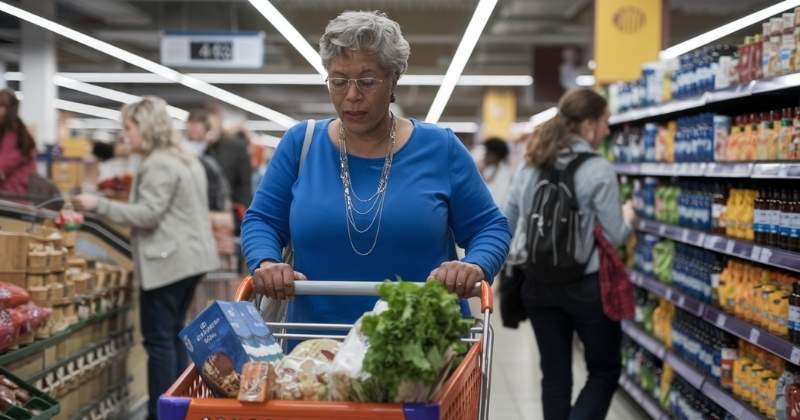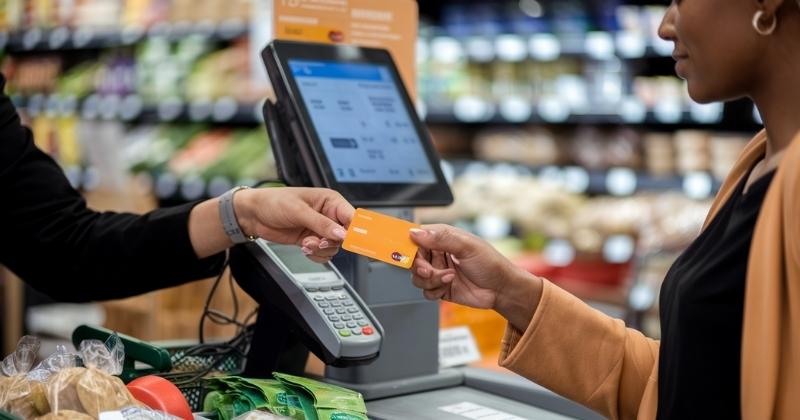
As the much-anticipated festive season approaches, a recent survey by Debt Rescue has painted a sobering portrait of a nation struggling under the weight of escalating financial hardships. This year, the festive cheer that typically ushers in December is replaced by an overwhelming sense of financial uncertainty, as households face mounting pressures from high inflation, rising fuel costs, and an ever-increasing cost of living.
Key Takeaways
- South Africans are Scaling Back Festive Spending: Due to rising inflation, high fuel costs, and financial uncertainty, many households are cutting back on traditional holiday celebrations, with significant reductions in travel plans and gift-giving this season.
- Economic Strain is Impacting Essential Spending: The rising cost of food and living expenses is forcing families to prioritise basic needs over festive meals and celebrations, with many unable to afford the typical holiday feast.
- Debt is Becoming a Growing Concern: With limited funds available, many South Africans are relying on credit and store cards to fund their holidays, leading to a deeper cycle of debt that could carry over into the new year, further straining household finances.
With household budgets stretched thin, South Africans are reluctantly trading in their holiday indulgences for a more frugal approach. For many families, the prospect of lavish celebrations seems like a distant dream, with financial caution outweighing the usual festive spirit. This year, instead of feasting and travel, the focus for many will be on making ends meet and avoiding further financial strain.
Travel Plans Cancelled Amid Soaring Costs
The survey revealed a telling statistic: 68% of South Africans have decided against travelling during the holiday season. A staggering 62% of these individuals specifically attributed their decision to the high costs of fuel, making it clear that a staycation will be the norm this year.
What was once a season of family reunions and exciting travel plans has turned into an at-home retreat, with travel expenses proving to be unaffordable for many. For millions, the idea of taking a trip has been replaced by the necessity of tightening belts.
Gift-giving, a hallmark of the festive season, is set to experience a dramatic shift. The survey indicates that 71% of respondents plan to cut back on buying gifts this Christmas. In a country where the tradition of exchanging presents is cherished, this signals a significant departure from long-standing customs. Many families will have to forgo the joy of gifting, as they prioritise essential spending over festive luxuries. This shift underscores the harsh reality that even the most cherished traditions are being sacrificed in the face of financial struggle.

Inflation and High Repo Rates Fuel Spending Cutbacks
The survey also points to the undeniable impact of inflation and high interest rates on consumer behaviour. 57% of respondents cited inflation as a key driver behind their reduced festive spending, while others referenced the still-high repo rate as a contributing factor.
As prices continue to rise across almost every sector, South Africans are feeling the pinch, with less money available for discretionary spending. The nation is being forced to make hard choices as they navigate this tough economic landscape.
Bargain Hunting Becomes the New Norm
In an effort to stretch their budgets further, 66% of survey participants revealed they would be focusing on purchasing low-cost items, whether it’s for gifts, food, or even clothing. From discounted gadgets to affordable groceries, the hunt for bargains is on, and families are learning to make do with less. Meanwhile, 56% of people said they would scale back their spending entirely, cutting out non-essential purchases altogether. This year’s festive season is likely to be marked by minimalism, with many families focusing solely on the necessities.
Cash Over Credit: A Sign of Growing Financial Caution
In a sign of heightened financial caution, 51% of South Africans stated they would opt for cash over credit to finance their holiday spending. This is a clear indication that people are wary of accumulating more debt, especially with interest rates still at elevated levels. The preference for cash reflects a shift towards a more conservative approach to managing money, where avoiding further debt becomes a priority. With the cost of living and the price of borrowing both rising, many are looking for ways to limit their exposure to financial risks.
For millions of South Africans, a full festive meal may be a luxury they can no longer afford. The cost of food continues to soar, with the Household Affordability Index revealing that the price of a typical food basket has increased by 0.9% year-on-year, reaching R5 361.04 as of November 2024. This steep rise in food costs means that many households are struggling to provide even the most basic meals during the festive season. The dream of a traditional holiday feast has become out of reach for a significant portion of the population, as rising food prices push essential items beyond their means.
Mervyn Abrahams, Programme Coordinator for the Household Affordability Index, notes that many South African families are now unable to afford even the most basic food baskets. With both Christmas shopping and the looming back-to-school expenses in January, families are facing a financial squeeze like never before. The increasing cost of food, combined with other essential expenses, is forcing households to make difficult decisions. For many, the traditional festive meals will be replaced by smaller, less extravagant meals, if they can even afford that.
Frugal living isn’t just about cutting costs; it’s about redefining how we enjoy life’s pleasures. From creative staycations to budget-friendly meals, South Africans are proving that memorable holidays don’t have to come with a hefty price tag.

The Debt Trap: Credit Cards and Loans Fuel Financial Struggles
For some, the only option to keep the holiday spirit alive is to rely on credit and store cards. However, this only adds to the growing burden of debt, which many families are already struggling to manage. This reliance on borrowed money sets the stage for a cycle of debt that could continue well into the new year, as households are forced to contend with mounting repayment obligations. The financial strain brought on by holiday spending is compounded by the longer-term issue of servicing debts, exacerbating the economic pressures faced by many South Africans.
Debt Review as a Lifeline for Struggling Households
Neil Roets, CEO of Debt Rescue, offers advice to those caught in the cycle of debt. He recommends seeking help through debt review, where a registered debt counsellor can assist individuals in managing their financial situation. Roets stresses that it’s never too early to seek professional guidance and that taking proactive steps can help people regain control of their finances before their situation becomes even more dire. In these challenging times, getting help early can provide a lifeline for families struggling to make ends meet during the festive season and beyond.
Turn saving money into an exciting challenge with creative ideas tailored for holiday planning. From festive jar savings to collaborative group efforts, these tips will keep your finances festive and your wallet happy!
Conclusion
The festive season in South Africa is being overshadowed by significant financial strain, as rising costs of living, fuel, and food continue to take their toll on households. With many opting for staycations, cutting back on holiday gifts, and even struggling to afford basic meals, the holiday cheer has been replaced by financial caution and uncertainty. As debt levels rise and families grapple with mounting expenses, seeking financial advice and assistance through debt counselling may be a vital step to help break the cycle of debt and regain control over finances in the challenging months ahead.
Fast, uncomplicated, and trustworthy loan comparisons
At Arcadia Finance, you can compare loan offers from multiple lenders with no obligation and free of charge. Get a clear overview of your options and choose the best deal for you.
Fill out our form today to easily compare interest rates from 19 banks and find the right loan for you.



